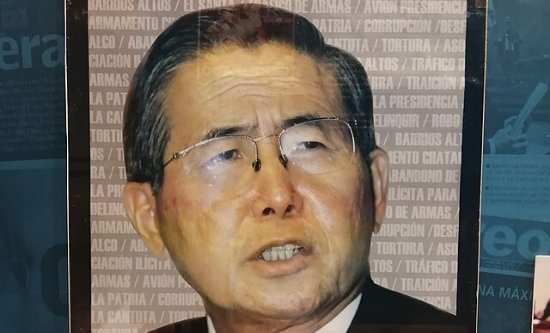On 6 December 2023, Alberto ‘The Butcher’ Fujimori, Peru’s president from 1990 to 2000, was released from gaol after 16 years on ‘humanitarian’ grounds due to his failing health. This restores his repeatedly annulled pardon of 2017. After his 2000 impeachment he was extradited from Chile in 2007, to where he fled via Japan, and was sentenced by the Inter-American Court of Human Rights to 25 years in prison for ordering the assassination of 25 people between 1991-1992. This is a drop in the ocean of the at least 5,000 estimated killings resulting from his presidency.
The same ‘humanitarian’ concern was conspicuously absent when the late Abimael Guzman was denied treatment for the skin cancer he developed serving a life sentence in solitary confinement. Guzman, more popularly known as Chairman Gonzalo, was the Peruvian Communist Party’s head during Fujimori’s presidency and directed a massive armed opposition against the government before his capture in 1992. He led the Shining Path movement, which saw mobilisation in the countryside as central to removing the bourgeois ruling class from power. This difference in treatment is indicative of Fujimori’s political legacy; those running the Peruvian state continue to maintain the deathgrip of imperialism on the country as he did.
This pattern repeats itself across the Americas, with US imperialism routinely backing anti-working class parties in its ‘backyard’. Reforms of the system are vigorously and systematically blocked – once again proven in practice by the ruling class’s intense manoeuvres, two impeachment attempts and physical threats against Pedro Castillo, the minority Peru Libre party’s social-democratic president, and his eventual removal and imprisonment in December 2022.
Poverty and revolt
Peru consistently ranks as the poorest of the Latin American nations by most measures. The abject poverty endemic to Peru led to the emergence of a revolutionary communist movement from the early-1980s to mid-1990s, which Gonzalo spearheaded. Its aim was a socialist revolution in Peru and national liberation from the neocolonial regime in place. Its method was a protracted people’s war in the countryside with the peasantry; and legal, democratic struggle in the cities with the workers, which all organised broad forces for democratic, peasants, women’s, indigenous and workers’ rights.
Murderous reaction
Fujimori was Peru’s president during the period of the PCP’s challenge and cracked down on all opposition to his rule with a brutality matched only by Chile’s Pinochet and Guatemala’s Efraín. He suspended formal democracy and enforced martial law from 1991-2000, making himself a de facto dictator. The quasi-fascistic nature of his regime was witnessed by the brutalisation, torture and disappearance of peaceful protesters in the cities, many of whom remain unaccounted for more than 40 years later. Hundreds of unarmed political (mainly communist) prisoners were killed in numerous prison massacres on his watch. Entire indigenous, peasant villages were eradicated overnight with the excuse that they were communist collaborators, mass sterilisation campaigns of indigenous women (to ‘keep the communists from breeding’) were enforced.
During all this the United States and its allies eagerly collaborated with Fujimori’s genocidal campaigns against the indigenous communities, as they had for decades with other Latin American dictatorships. Fujimori himself was deeply unpopular, except to the privileged few in Peru who saw that their own privileged status, sustained by US imperialism, relied on his continued reign. It was only because of the US’s colossal backing that Fujimori was able to act with the brutality he did while in office.
Blood-drenched legacy
As with other US-backed dictators such as the Philippines’ Ferdinand Marcos, Fujimori’s record has been effectively laundered in Peru. Like Margaret Thatcher, his legacy is treated by the mainstream press as vaguely ‘divisive’ rather than that of a cold-blooded, genocidal imperialist puppet. The demands of the capitalists and privileged workers now to ‘respect’ his era of ‘law and order’, is contrasted with the picture painted of the ‘chaos’ of the communists, a perceived slur aimed at those leading Peru’s poor in fighting for survival from the daily grind and the police assaults on their villages and shantytowns. These are the hubs of oppressed masses from where Gonzalo built his movement, but where the upper crust would never dare step.
Gonzalo was never afforded release or forgiveness like Fujimori. To this day he is universally reviled by the Peruvian bourgeoisie, and ‘respectable’ Left forces. Even many so-called ‘communists’ still parrot the lies of the Peruvian establishment against him and the PCP. Any sober assessment of the Shining Path’s history is dispensed with. The relevance and serious challenge to power achieved by the movement in Peru is shrugged off for sectarianism’s sake. Fujimori’s pardon, his whitewashing and legacy – directly expressed in his daughter Keiko Fujimori’s presidential ambitions – is par for the course for the lackies of imperialism globally.
Frank Kaasen




